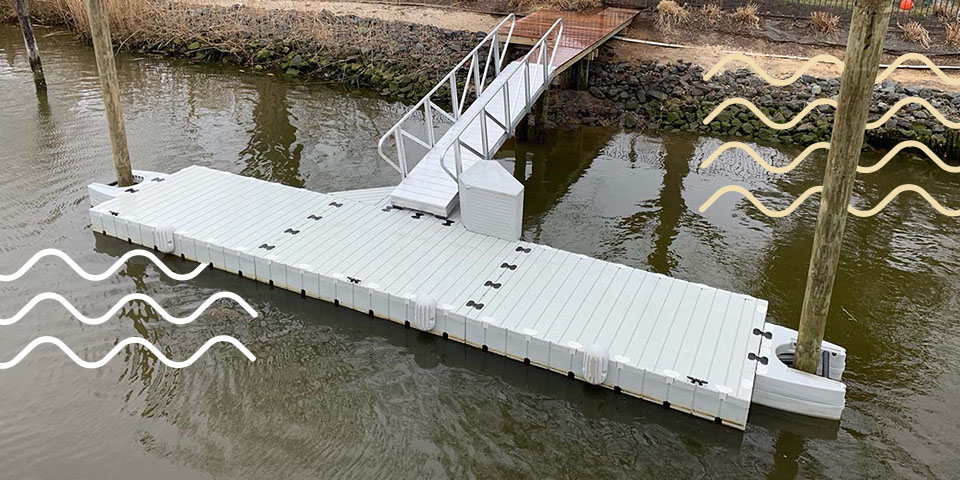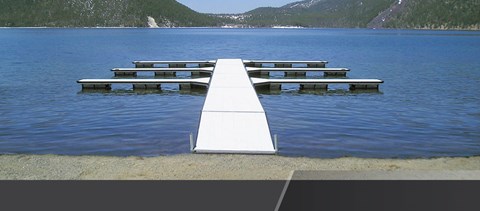Enhance Your Water Experience with Customized Floating Docks Designed for Your Way of life
The Ultimate Overview to Picking the Best Floating Docks
Picking the suitable floating dock requires a detailed understanding of various aspects that affect both performance and durability. Aspects such as dock kinds, materials, and crucial functions dramatically impact your decision-making process. Additionally, considerations around installation and budget plan can even more make complex the selection. By taking a look at these facets systematically, one can make sure a financial investment that not only fulfills instant demands yet likewise improves overall residential property value. As we check out these important elements, it becomes clear that the right options can bring about a lasting and practical option tailored to your specific demands.
Understanding Floating Dock Types
When choosing a floating dock, it is necessary to understand the various kinds readily available, as each offers unique objectives and applications. Floating docks largely fall under three groups: modular, stationary, and pontoon docks.
Modular docks are composed of specific sections that can be easily constructed or reconfigured, making them ideal for transforming water levels and varied usages, such as entertainment tasks or business operations. Their flexibility enables personalization based upon details needs.

Pontoon docks are defined by their resilient structure, frequently made up of several pontoons that provide security and support. They are specifically appropriate for larger vessels and are generally used in marinas or for waterside properties. Comprehending these kinds help in selecting the most ideal floating dock to meet certain needs, guaranteeing optimal capability and safety and security.
Key Products for Sturdiness
Picking the right materials for floating docks significantly influences their durability and durability. The most typical materials consist of timber, plastic, steel, and composite products, each offering unique advantages and restrictions.
Wood, commonly preferred for its visual allure, requires normal maintenance to withstand wetness and decay. Pressure-treated lumber can enhance resistance to rot, but it may still be at risk to bugs and weathering.

Plastic docks, constructed from high-density polyethylene (HDPE), are resistant to deterioration, UV radiation, and effect, making them a preferred option for seaside atmospheres. Their lightweight nature also assists in easy installation and moving.
Steel docks, typically created from light weight aluminum or galvanized steel, provide phenomenal strength and longevity. They are resistant to corrosion, specifically when treated, but might need extra insulation to avoid warmth buildup in warm climates.
Composite products, integrating wood fibers and plastics, provide the benefits of both timber and plastic, standing up to wetness and fading while requiring marginal upkeep. - floating dock services
Ultimately, the choice of materials must straighten with ecological problems, planned usage, and upkeep choices to make certain the floating dock continues to be useful and visually pleasing over time.
Crucial Attributes to Think About
While the selection of products is vital, thinking about important features for floating docks is similarly important to make certain optimum performance and individual satisfaction. One crucial function to analyze is the dock's buoyancy ability, which identifies just how much weight it can this post sustain without immersing. floating dock builder. This is vital for accommodating boats, individual boat, and also recreational activities
Additionally, mobility is a significant consideration. Depending upon your needs, you might desire a dock that is simple to take apart and transport, specifically if you intend to move it seasonally. Stability is one more necessary feature; a properly designed floating dock must minimize movement brought on by wind and water currents, giving a safe and secure system for users.
Safety and security functions, such as non-slip surfaces and rounded sides, are also critical to prevent mishaps, particularly in damp conditions. Consider the accessibility of devices, such as bumpers, cleats, and ladders, which can enhance the performance of your dock.
Installment and Maintenance Tips
Establishing and keeping a floating dock needs mindful planning and interest to information to guarantee its longevity and ideal efficiency. Begin by selecting a proper area that reduces exposure to solid currents and waves, which can create wear and tear. Make sure that the water deepness is sufficient for the dock's height which it is secured safely to stop movement.
During installation, comply with the maker's standards very closely, as inappropriate setting up can endanger security. Usage top quality materials resistant to corrosion, such as aluminum or treated wood, to enhance sturdiness. Consistently evaluate all parts, consisting of drifts, adapters, and securing systems, for indications of damage or wear.
If your dock makes use of flotation protection gadgets, ensure they continue to be complimentary and intact from punctures. By adhering to these setup and maintenance pointers, you can take navigate to this website pleasure in a dependable and useful floating dock for years to come.
Budgeting for Your Dock
Budgeting for your dock is an important step that can substantially impact your general satisfaction and financial investment in a beachfront property. Establishing a clear budget plan aids you navigate the different alternatives available and ensures you make educated decisions that line up with your economic abilities.
Begin by establishing the size and style of the dock you call for, as these elements will greatly influence the price. Floating docks can differ significantly in price, depending on materials, buoyancy, and functions like devices and ramps. Study various manufacturers and suppliers to compare prices and understand the market value.
Along with initial costs, think about continuous costs such as maintenance, insurance coverage, and prospective repair services. Allot funds for these repeating expenses to prevent surprises down the line. It's likewise prudent to allocate any kind of necessary permits or evaluations, which might be called for by neighborhood laws.
Last but not least, remember the possible roi. A well-planned dock can enhance your residential property's worth and allure, providing a positive monetary impact in the long-term. By budgeting effectively, you can guarantee that your dock meets your requirements without endangering your economic security.
Verdict
In final thought, selecting the excellent floating dock demands a detailed examination of various aspects, including dock kinds, materials, necessary read the full info here features, and setup procedures. Prioritizing durability and compliance with neighborhood policies inevitably boosts functionality and building worth. Careful consideration of monetary restrictions will certainly better ensure a sound investment. By adhering to these guidelines, individuals can make informed decisions that promote long-term complete satisfaction and usability in aquatic environments.

While the option of materials is important, considering necessary features for floating docks is just as essential to make certain ideal efficiency and user satisfaction.Setting up and keeping a floating dock calls for mindful planning and attention to information to ensure its longevity and optimum efficiency. Floating docks can differ considerably in cost, depending on materials, buoyancy, and functions like ramps and devices.In final thought, choosing the suitable floating dock requires a detailed evaluation of various factors, consisting of dock kinds, products, essential attributes, and installment procedures.